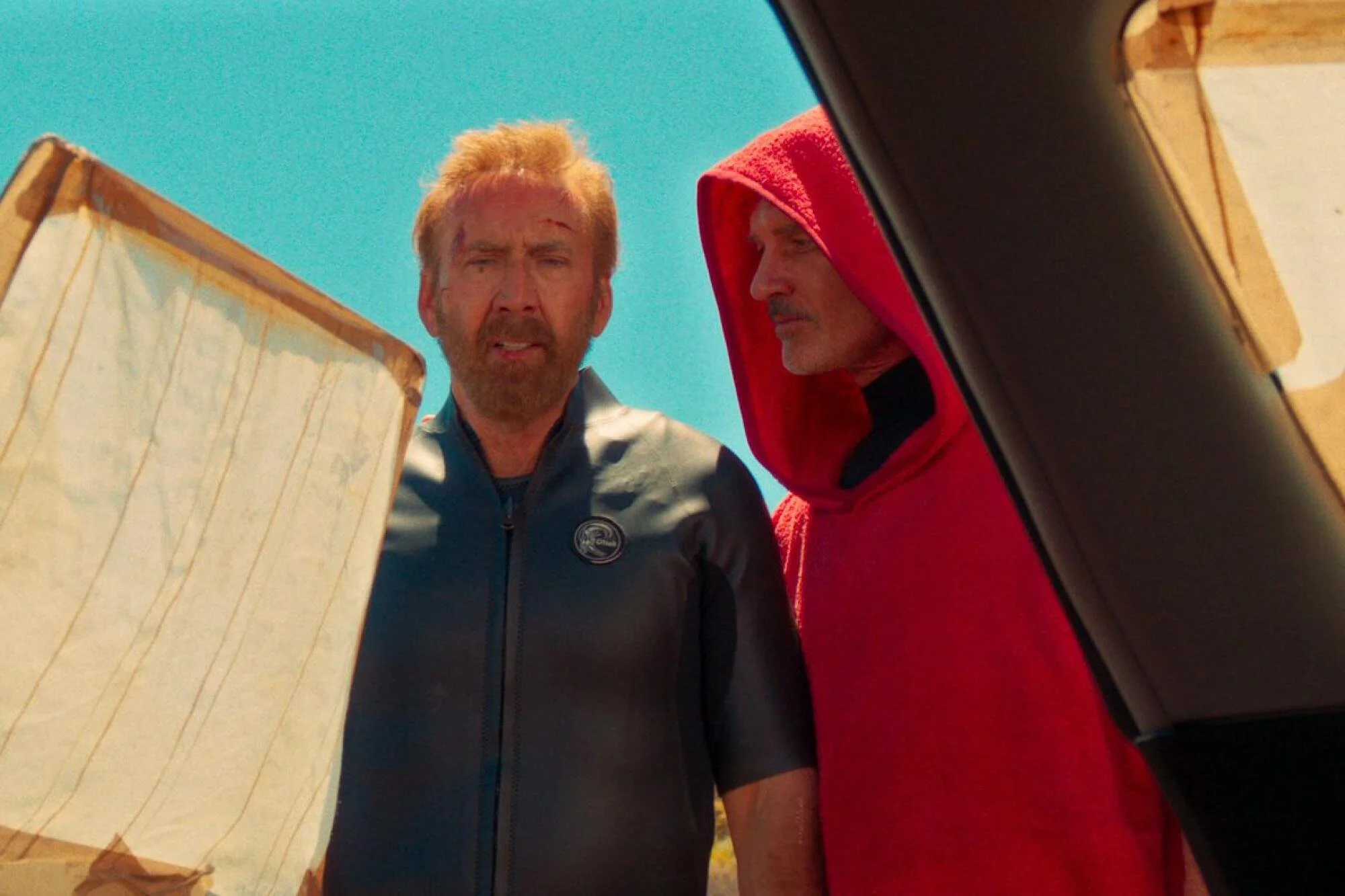"The Phoenician Scheme" Review: Wes Anderson’s family drama delights
Known for his quirky, symmetrical cinematography and huge A-list ensemble casts quipping at each other, Wes Anderson is a polarising director. Love him or hate him, his movies from The Royal Tenenbaums, Moonrise Kingdom and The Grand Budapest Hotel always have a distinct world with complex family dynamics, a hint of crime caper, and a real sense that everyone involved is just having a grand ol’ time.
The Phoenician Scheme is the latest entry in his oeuvre, the story of Anatole “Zsa-Zsa” Korda (Benicio del Toro) passing down his shady arms-dealing and investment business to his pious, nun novice daughter Sister Liesl (Mia Threapleton). Their father-daughter dynamic is the main drive of the film, accompanied by her tutor Bjorn Lund (Michael Cera) and a humongous supporting cast, mostly given spot roles as they quest to finish his largest project yet, a scheme to overhaul the Phoenicia region and bring it prosperity.
Anderson’s movies shine because they combine simplicity with an overwhelming sense of depth. At its simplest, the plot has the father and daughter reconnect through a shared goal, while exploring themes of gentrification, power, religion, finance, family, political intrigue and violence.
Mia Threapleton as Sister Liesl is a standout; her dry, sarcastic wit and perfect facial expressions are a revelation, as she reacts to her estranged father’s schemes and actions she begins to question her own choices. Each time Wes Anderson meets a sardonic British actor that gets him, it pays dividends, as his work is so rooted in self-reference and wry humour (also see Richard Ayoade in his past work and appearing in this movie as an ethical freedom fighter).
Del Toro’s Korda is brilliant also, as an oft-assassination-attempted man who knows his time is limited, and gets to give some amazing quick-fire speeches and retorts to his many business associates. Michael Cera’s Bjorn is also a delight, placed in the background of scenes as comic relief, but getting to show some of his acting chops outside of mumblecore indie, and his growing affection towards Liesl is another strong point of the film.
While Anderson’s movies are not for everyone due to their twee nature, unconventional exposition and storytelling, the charm of the movie is undeniable. There is simply no director that makes me feel as transported into a fable, and demands and rewards future viewings with the complexities of the filmmaking.
Each shot is meticulously crafted, from the sets, costumes and makeup, giving the film a storybook feel, even when at its most extreme. Some of Anderson’s other work (The Royal Tenenbaums in particular) might be better examples of nailing the familial emotional weight, Phoenician Scheme still has it in spades. Anderson’s films are the opposite of where ‘Big Hollywood’ is heading in it’s sequel/franchise/remake soup days, and that deserves the most praise.






